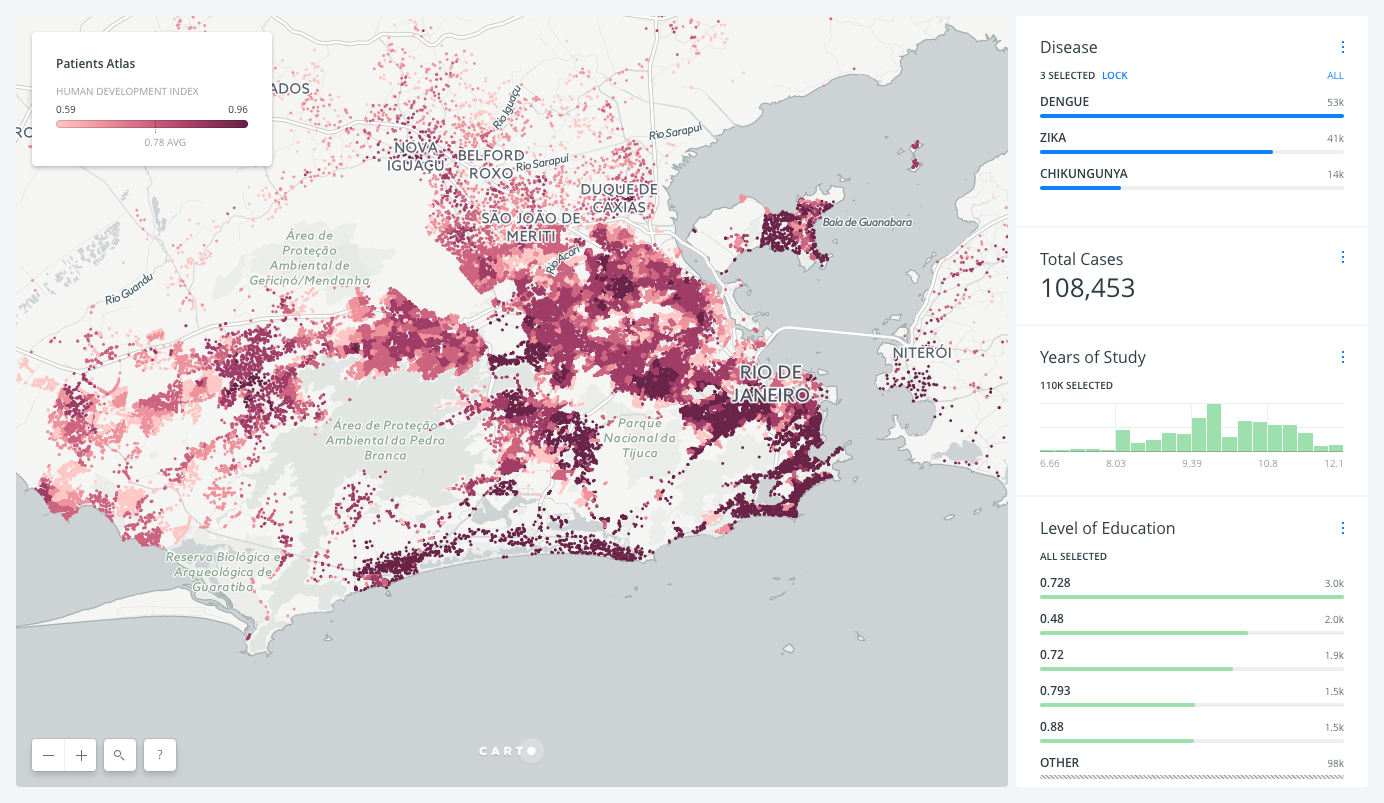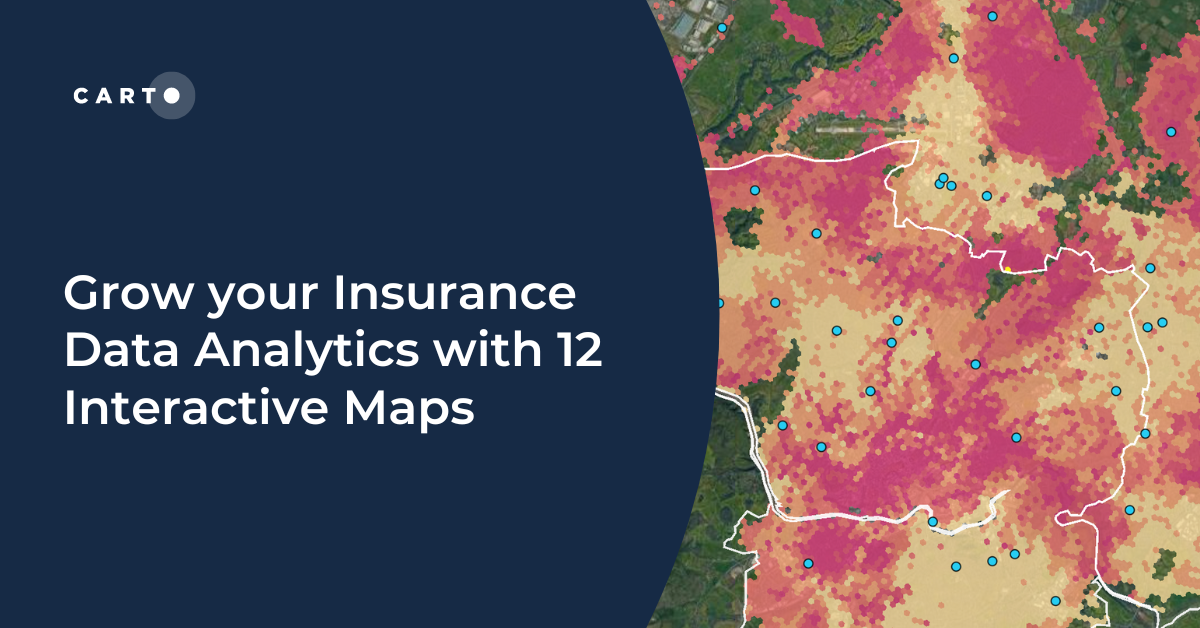Understand and Predict Zika in Brazil with Spatial Analysis

Zika a virus that can lead to neurological complications presents serious public health challenges to millions of people in nearly 50 countries. To confront these challenges however the development community has enlisted CARTO’s location intelligence services.
In the last decade cities and countries have greatly improved their capacity to document new cases of communicable diseases in real time. Data only truly becomes useful once leveraged with data visualization location intelligence and analytics tools. A comprehensive spatial analysis of the current impact and future threat is an important part of the efforts being made to minimize Zika’s impact prevent the disease from spreading and prepare at-risk communities. Zika is transmitted not only by mosquitos but also through sexual intercourse thus increasing the likelihood of rapid transmission and an epidemic. Women of childbearing age and pregnant women are high-risk portions of the population as Zika causes birth defects in children.
A holistic approach to addressing Zika relies on engagement between international development organizations local and federal level public sector agencies and public health experts equipped with the latest technological tools and most current data. The Inter-American Development Bank organized the Alerta-Zika Hackathon in Rio de Janeiro Brazil earlier in December. The event engaged students and experts alike in the fields of epidemiology technology and public health to leverage data location intelligence and other analysis tools to derive new insight about Zika’s impact on communities in Rio de Janeiro. Brazil has more confirmed cases than any other country and Rio de Janeiro has been of particular concern since the city received millions of visitors during the Summer 2016 Olympics.
The Bank teamed up with FGV/EMap Municipal Health of Rio de Janeiro Rio Lab PUC Rio Amazon Web Services and CARTO to collaborate on ways to predict possible transmission routes using available data and spatial analysis. The Hackathon was the beginning of an important multi-stakeholder collaboration which will hopefully yield new findings about the past present and future of Zika. The spatial implications of the disease and its future are crucial for predicting where it might spread and how to properly prepare communities. Incorporating census and demographic data into the analysis can help prioritize the allocation of resources to these vulnerable populations. To sort through these types of datasets during the hackathon Team Z3O2 turned to CARTO. The team members included Eduardo Reis (Machine Learning) Gabriel Ligneul (Programming Language) and Sasha Nicolas (Computer Graphics) the latter of whom stated:
We modeled a neural network (NN) to predict future nearby cases based on patients in a neighborhood. After having this NN established we will develop a stochastic simulator to create a scenario of a Zika outbreak. The simulation will give us an overview of the spread of the Zika epidemic in order to plan ahead the whole outbreak and the NN predictor will give authorities spots in the city they should be applying containment actions.
We are proud to announce that team Z3O2 placed second in the competition and again demonstrated our belief that democratizing location intelligence will help us understand and solve today’s problems. The lessons learned in Brazil moreover will be expanded upon in future hackathons throughout the region and we look forward to continuing our engagement with communities businesses governments and organizations in Latin America the Caribbean and the United States.
Stay tuned to see where CARTO and the Inter-American Development Bank head next to fight the Zika virus in Latin America.
Hapy Data Mapping!









.png)





